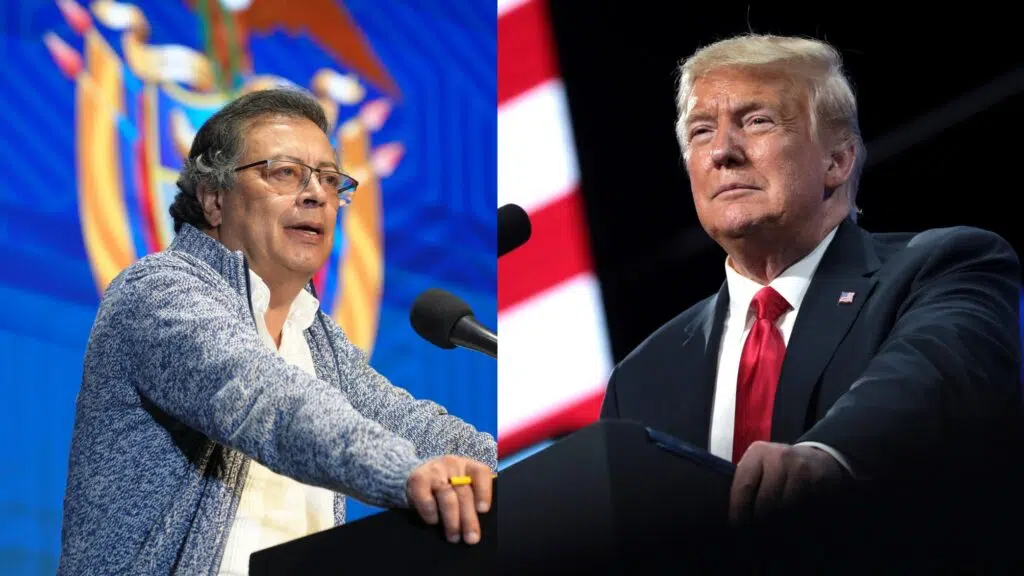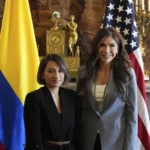Introduction
In a move that sent shockwaves from Bogotá to Washington, Colombia has drawn a firm line in the diplomatic sand, recalling its ambassador to the United States. This decisive action represents a significant escalation in tensions, catalyzed by remarks from former US President Donald Trump, who labeled Colombian President Petro a “drug leader” and threatened the imposition of new tariffs.
This move signals a critical moment in Colombia–US diplomatic tension, with potential consequences that extend far beyond the two nations involved. It highlights the delicate balance between national sovereignty and international relations in an era where political rhetoric can instantly trigger economic and diplomatic fallout.
To understand the full scope of this developing situation, it’s essential to look beyond the headlines. Here are the three key takeaways from this escalating dispute.
More Than a Reaction, It’s an “Assertive Stance” on Sovereignty
Colombia’s decision to recall its ambassador is a calculated and powerful message about national dignity and the right to self-governance. Colombian officials swiftly condemned the remarks, framing the recall as a necessary defense of their country’s sovereignty against external pressure. The “drug leader” label was seen in Bogotá as not just an attack on the president, but an insult that weaponizes painful historical narratives against the nation itself, making the defense of sovereignty intensely personal.
This event is the focal point of the ongoing President Petro dispute with Trump, creating a palpable foreign relations strain between the two historical allies. The significance lies in Colombia’s willingness to create a diplomatic rift to shield its leadership from foreign political attacks, an assertive stance demonstrating that the nation will not tolerate what it perceives as an infringement on its autonomy.
Political Rhetoric Triggers Real Economic Fears
The Trump tariff threat reaction has moved this dispute from the realm of words into the world of tangible economic consequences. This is not merely a political spat; it is a potential trade policy escalation that could disrupt a crucial economic partnership. The tariff threat weaponizes economic interdependence, forcing Bogotá to calculate the cost of defending its political dignity.
According to observers, the fallout could include a “reassessment of ongoing trade agreements” and may force the Colombian government to prepare strategies to mitigate potential economic damage. This situation starkly illustrates how quickly political commentary can threaten economic stability, underscoring the current fragility of Washington Bogotá relations.
The Ripple Effect is Being Watched Across Latin America
This diplomatic standoff is not occurring in a vacuum. As a major Latin America politics update, the events are being closely monitored by neighboring countries, who see this as a test case for future relations with the United States. Regional neighbors are likely weighing the effectiveness of Bogotá’s hardline response against the potential economic fallout. For nations often caught between domestic pressures and US influence, Colombia’s move serves as a real-time test of whether assertive diplomacy is a viable strategy or a costly miscalculation.
The precedent-setting nature of Colombia’s response is particularly noteworthy, as it “could set a precedent for diplomatic reactions to external political threats” throughout the region. How this dispute unfolds could influence the diplomatic strategies of other Latin American nations when facing similar pressures, potentially reshaping the dynamics of US-Latin America relations for years to come.
Conclusion:
In summary, Colombia’s action is a multi-faceted response: it is a firm defense of national sovereignty, a reaction to credible economic threats, and an event with significant regional implications. By recalling its ambassador, Bogotá has signaled that some lines cannot be crossed without consequence.
As reported by Indian Express global news, both countries now face a “critical juncture” in their long-standing trade and diplomatic relationship. This incident demonstrates that in an era of polarized politics, long-standing alliances can be destabilized not by formal policy shifts, but by the sharp edge of political rhetoric alone. This leaves a crucial question for policymakers and citizens alike: As political rhetoric increasingly shapes international policy, how can nations protect both their sovereignty and the stability of their crucial alliances?





